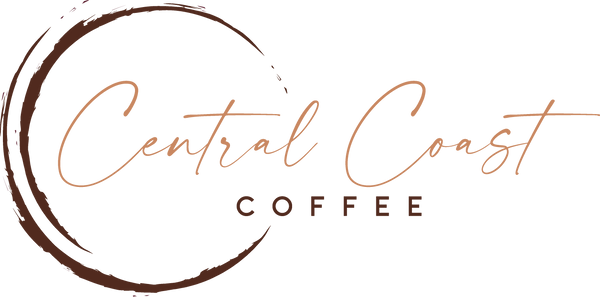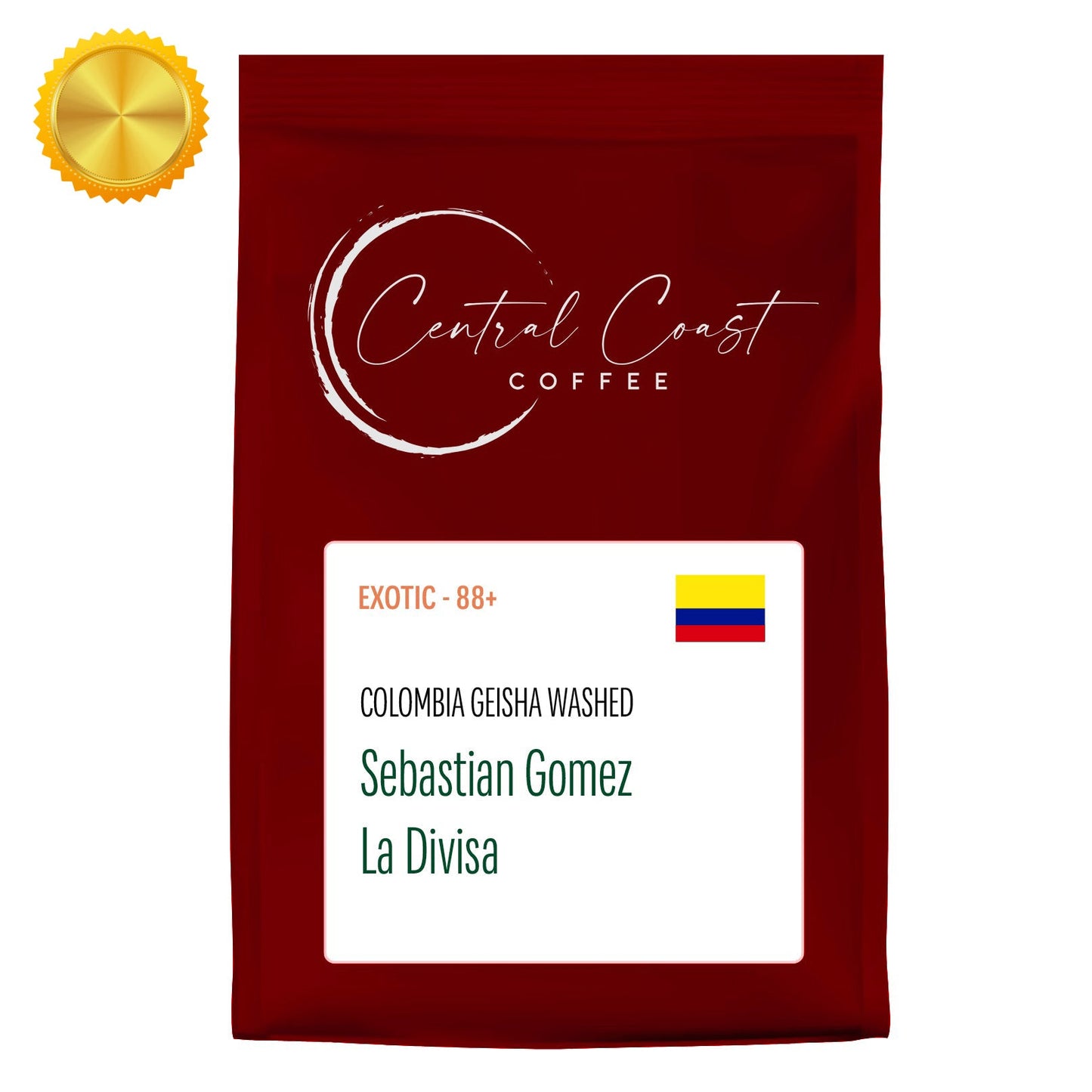
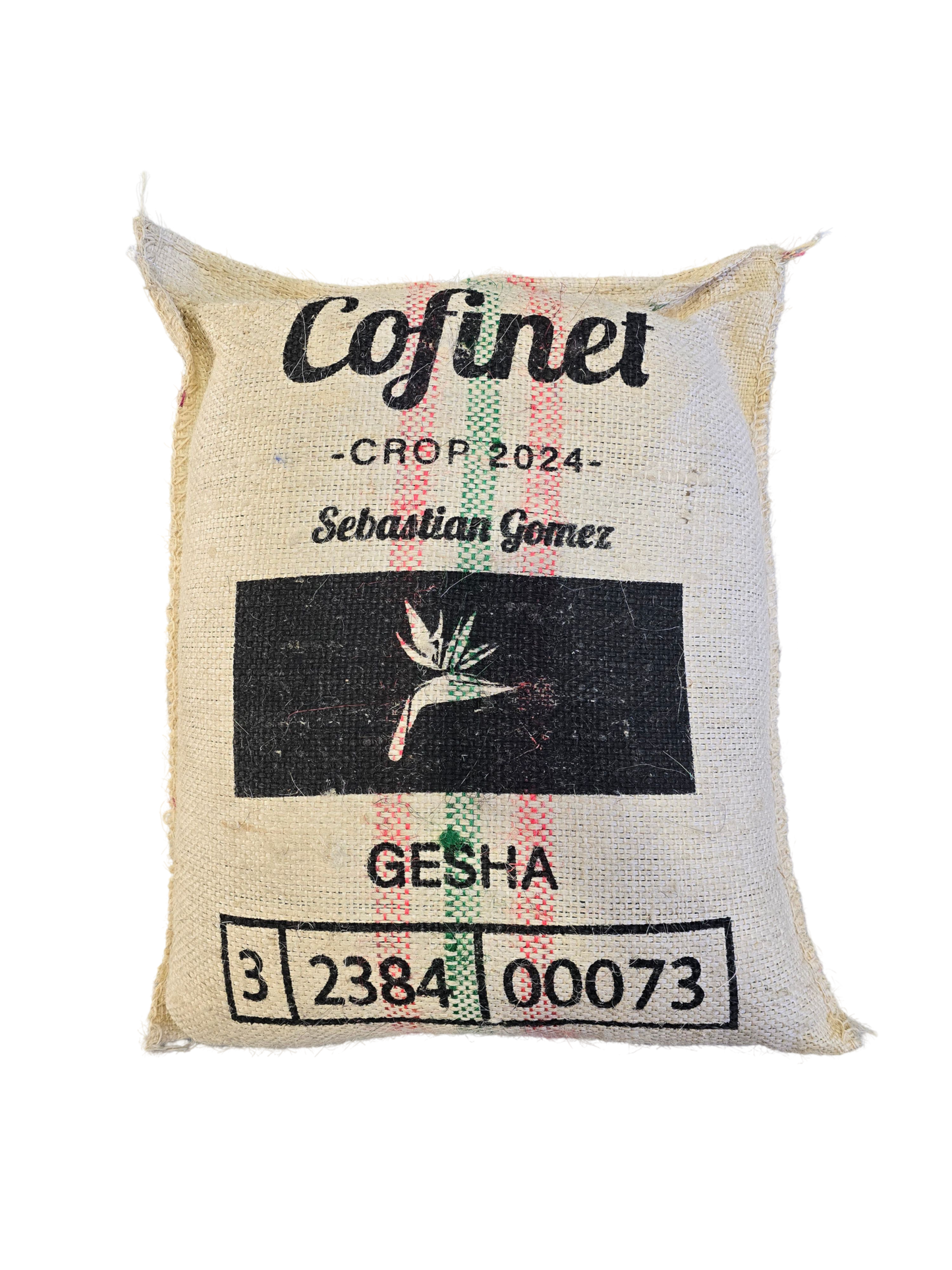
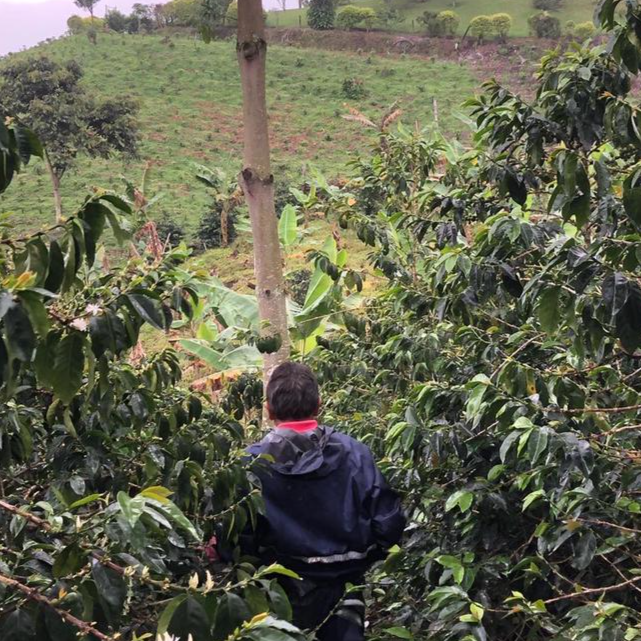
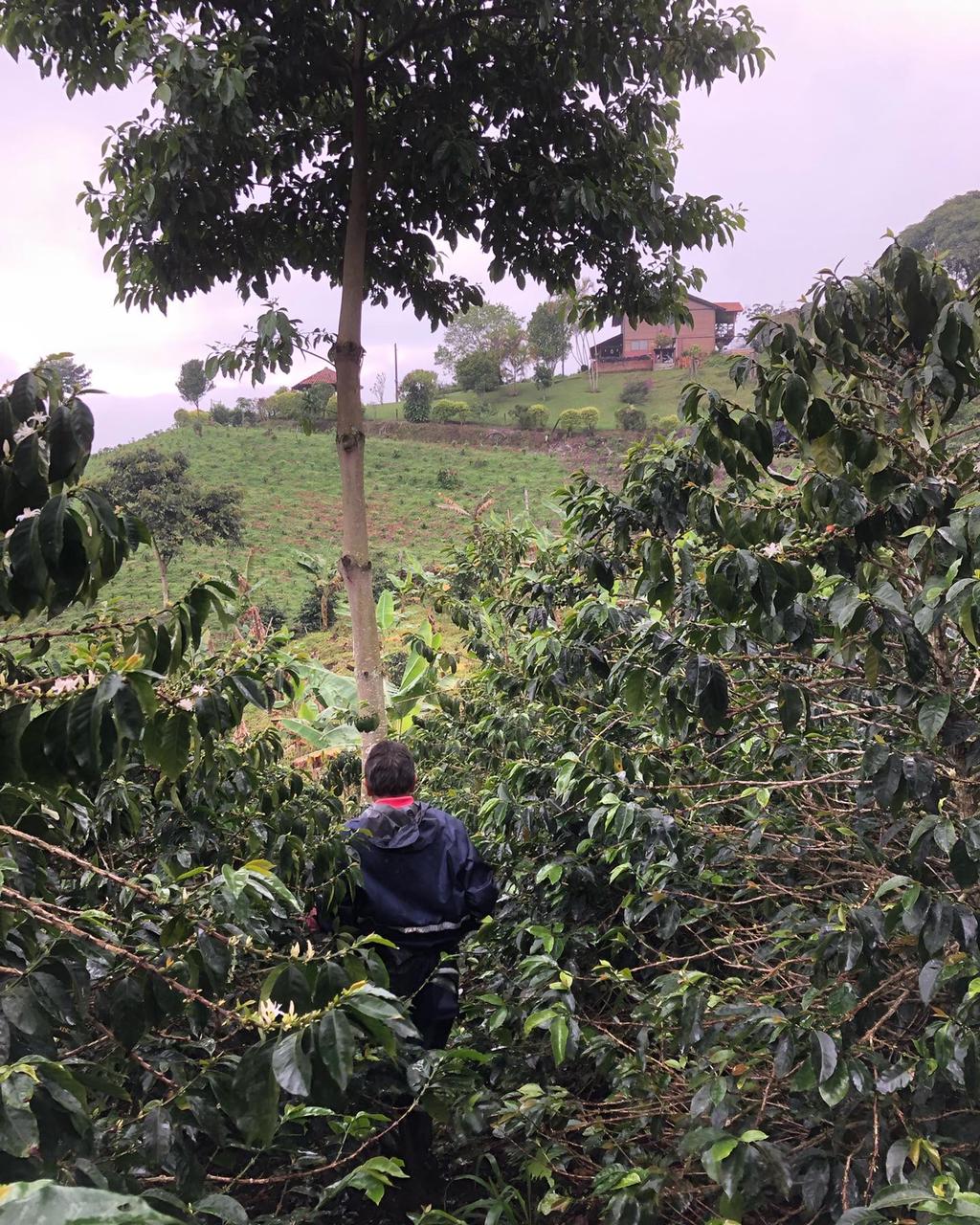
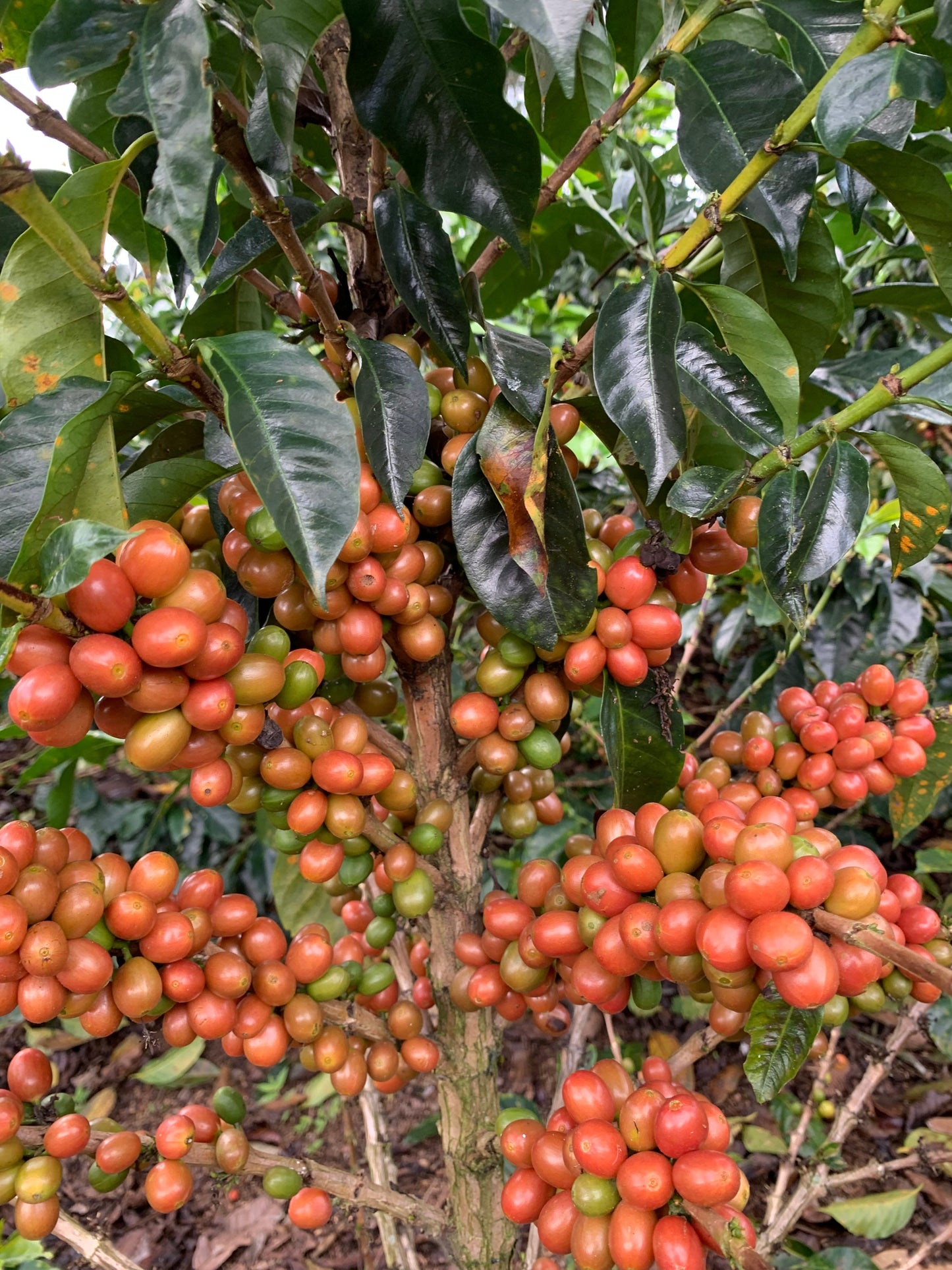
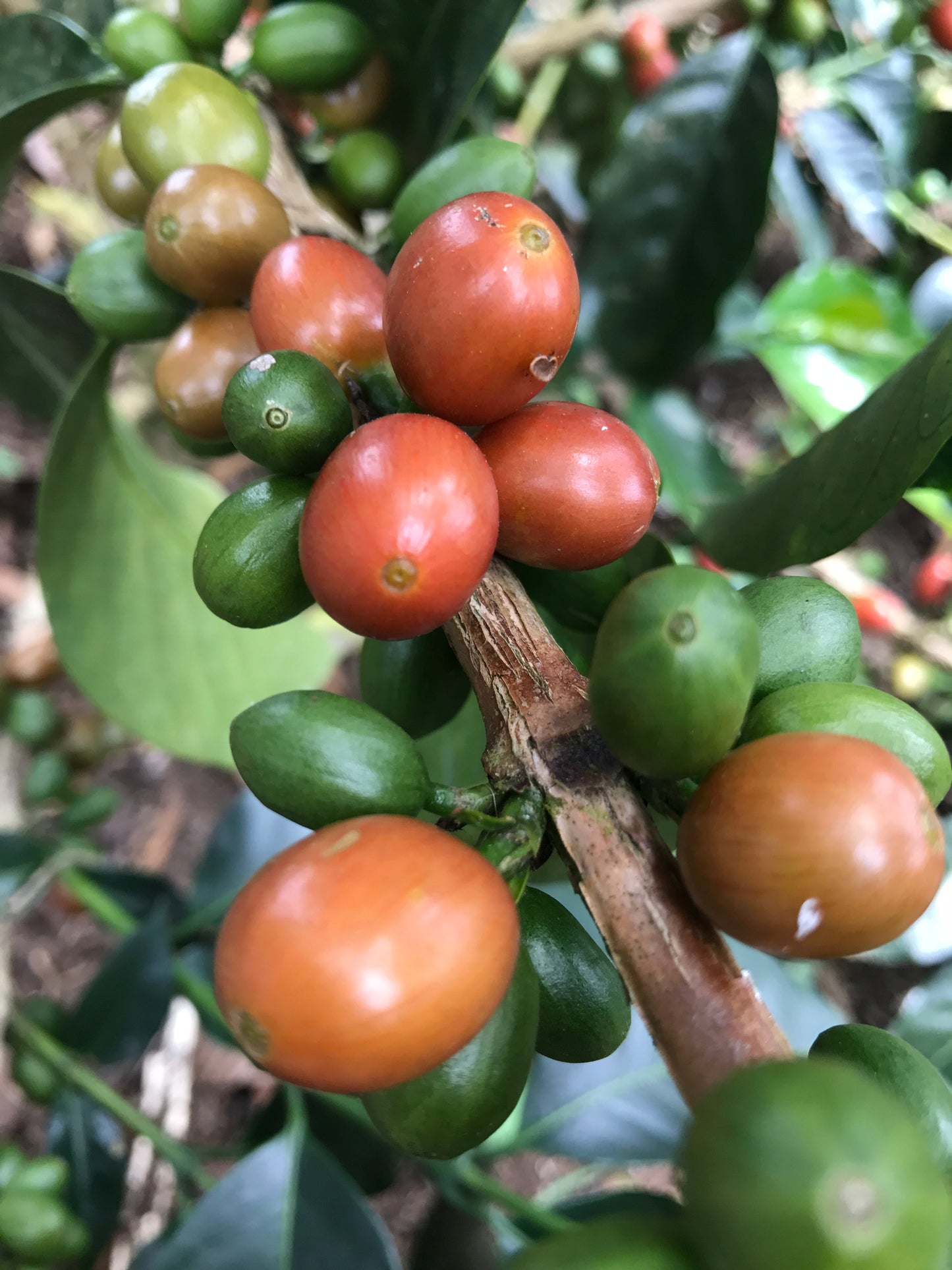
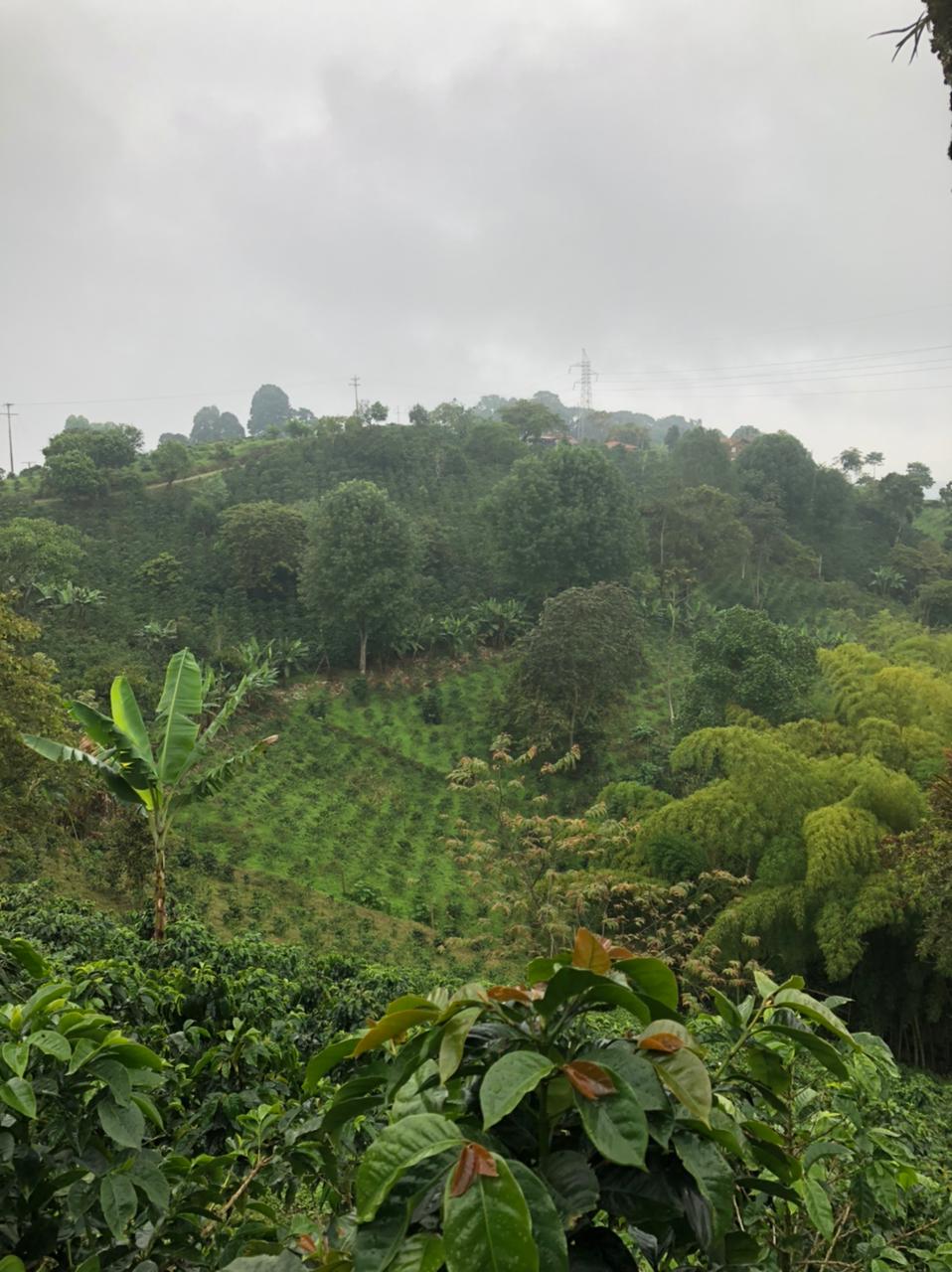
This coffee’s roasted in our filter style — meaning it’s designed to shine as black coffee rather than with milk. That doesn’t mean you have to brew it as a pour-over though. You can make it however you like — espresso, moka pot, AeroPress or anything in between. We simply roast it a little lighter to highlight the bean’s origin flavours giving you a cup that’s clean, vibrant and full of clarity.
Lighter roasting keeps more of the natural acidity and sweetness intact which makes for a beautifully expressive black coffee. This coffee is best enjoyed without milk as it’s too acidic and the flavours don’t pair well once milk is added.
If you prefer your milk coffee with richer caramel, toffee or nutty flavours you might enjoy our espresso range more. Those roasts are taken a little darker to bring out deeper sweetness and balance beautifully with milk.
Origin and Sourcing
?
?
?
Roast Details
?
?
?
?
?
?
?
?
Taste Profile
?
?
Colombia | La Divisa | Geisha Washed | Signature Series - When is peak freshness?
Light Roast - Roasted on Roest L100 Ultra
About Sebastian Gomez
Sebastian Gomez comes from a traditional coffee family. He along with his father owns La Divisa Farm, a 13-hectare farm, located at 1.700, in Circasia, Quindío. On the farm, they have some beautiful shade trees such as Guamo, Guayacan, Gualandai, and Nogal.
Sebastian is a young farmer and along with his wife both work on the coffee duties and administrative matters. His father, John, has been working in coffee for more than 30 years and has been taking care of the coffee farm since he bought the farm in 1995. Sebastian started to be more involved in coffee in 2014 when he came back To Colombia. Sebastian could witness the specialty movement in other countries, so he decided to be more involved in coffee and it was when they decided to focus on specialty coffee. They planted varieties such as Geisha and Pink Bourbon.
Sebastian shared that they knew they were about to wait and just let their hard work speak out. It was three years after they could see the marvelous result. Sebastian tells us that 10 years later, quantity was the focus, but now they see a radical change since now the focus in the coffee industry is quality. Now they want to do differentiated coffees since they know that is what the market demands too.
-
About Geisha Varietal
Geisha (also known as Gesha) is known for its exceptional cup quality, especially when grown at high altitudes. Geisha was first discovered in Abyssinia, Ethiopia in 1931. Geisha was planted in Panama for the first time in 1963 and in Colombia in 2005 - The name supposedly derives from Ethiopia’s Gori Gesha forest.
There is some confusion with several genetically distinct varieties that have all been called Geisha, but the most famous variety is the Panama one. The variety was brought to Lyamungu research station in Tanzania and from there to Centro Agronómico Tropical de Investigación y Enseñanza (CATIE) in Central America in 1953. At CATIE, the variety was logged as T2722. CATIE distributed T2722 across Panama in the 1960s for its Coffee Leaf Rust (CLR) resistance, but its brittle branches meant it was not widely planted.
Panama Geisha reached its modern fame in 2005 when a Geisha lot won the “Best of Panama” competition and broke contemporary records at over $20/pound. DNA analysis has demonstrated that the Panama Geisha descended from T2722 is distinct and uniform. Today, Geisha is known for its delicate florals, jasmine and stone fruit.
Coffee in Colombia
Colombia has been producing and exporting coffee renowned for their full body, bright acidity and rich aftertaste, since the early 19th century.
Colombia boasts a wide range of climates and geographic conditions that, in turn, produce their own unique flavors in coffee. This also means that harvest times can vary quite a bit. In fact, between all its different regions, Colombia produces fresh crop nearly all year round.
The increasing focus on the specialty industry is changing the way traders and farmers do business. It is becoming more common for farmers to isolate the highest quality beans in their lots to market separately. These higher-quality lots are often sold under specific brands or stories.
Besides its wide variety of cup profiles, Colombia has quickly expanded its certification options over the past 10 years. The most common certifications available are Fairtrade, Rainforest Alliance, UTZ and Organic.
#BBD0E0 »
SKU: colombia_la_divisa_160g
Package Weight: 200g
